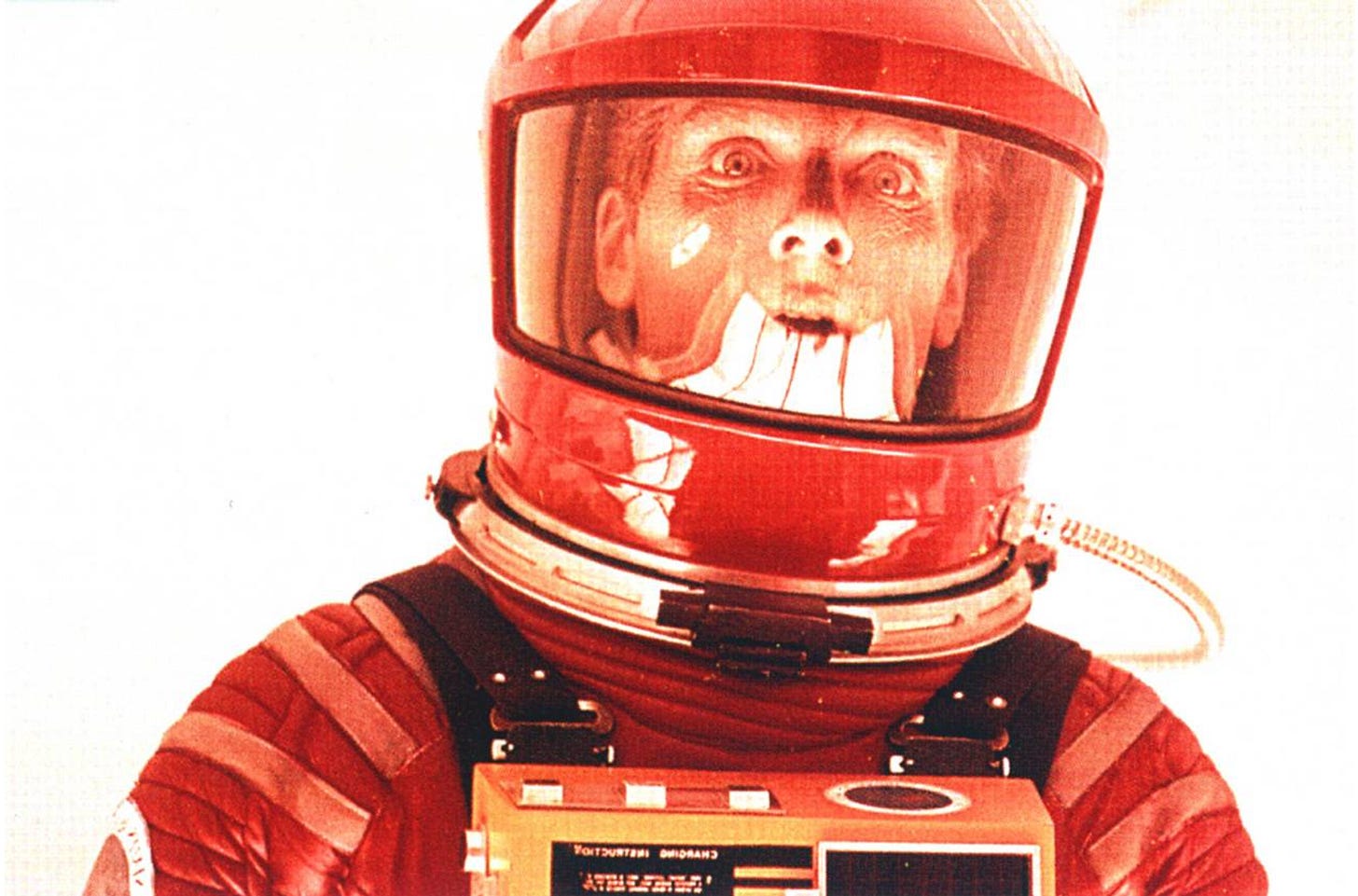Mental health in space: don’t get too crazy about space
Orbital mission crews rigorously prepare for any unforeseen accidents and technical emergencies. However, the risk remains elevated due to the human factor.
While researching space medicine for one of our previous articles, we discovered no commercial mental health solutions tailored to astronauts. Let’s take a closer look and discover why this is the case.

Space is a hostile environment
Space travel is a very taxing experience that puts tremendous amounts of pressure on astronauts, both mentally and physically. If an astronaut starts experiencing severe mental health issues, the mission can be terminated, or worse - other crew members may be harmed. To avoid such scenarios, NASA prepared detailed guidelines that elaborate on how astronauts should act when faced with acute psychosis or suicide attempts, among others. For example, patients must be restrained with tape and tranquilized. To the best of our knowledge, no one has ever been tranquilized or taped to a chair in space. However, the incredibly stressful psychological environment led to the first “strike” in space (due to overworking during Skylab 4 mission), a shared delusion, and interpersonal issues (due to the illness of one of the cosmonauts and technical problems aboard Soyuz-21), refusal to return to Earth (because of an unsuccessful experiment during STS-51-B), and sexual harassment (Sphinx-99 flight simulation mission).
So what are the factors that lead to these situations? First, astronauts are subject to partial social deprivation for long periods of time. This means limiting the circle of persons and forms of communications. Second, they are subject to sensory deprivation, when sense organs receive less stimuli than on Earth - tastes, smells, temperature have a limited spectrum. Third, they perform difficult technical tasks according to a strictly established schedule, being constantly examined by experts from mission ground control. Fourth, they are exposed to a psychologically harmful environment that includes unceasing noise (try to experience it as a background for 12 consecutive hours at the maximum volume of your laptop), uncomfortable light, and an awkward interior leading to weakness and loss of energy - a physical condition that is not pleasant to experience.
Furthermore, 16 sunrises and sunsets experienced every day on ISS disrupt one’s sleep schedule. Taken together, these factors can lead to depression, solipsism syndrome (a mental condition in which a person feels that reality is not external to their mind), as well as other psychological conditions and psychiatric disorders. As a consequence, astronauts can lose sight of danger and risk signals, because they can misperceive and assume they are not real.
Prevention is better than cure
In order to prevent emergency situations due to the human factor, space agencies conduct a thorough selection for psychological compatibility and stability. Those who prefer challenging tasks, have a sense of other people's needs, and are ready to compromise are the most suitable staff for spaceflight, as opposed to arrogant, irritable, and competitive people.

Other ways to decrease mental health risks include administering remote behavioral health checks during the flight, providing advice on creating healthy work and rest schedules, and consulting with clinical psychiatrists at the mission control to assist in case of any mental health issues. Nowadays, everything is performed to keep the crew grounded: members’ families prepare care packages and surprise presents that are sent to the International Space Station during resupply missions.
Martian longing
The longest space flight was made by Valery Polyakov who spent 437 days in orbit. Although humankind is largely experienced in organizing long-term space expeditions, one cannot say with certainty how a person will behave during a trip to Mars. There are experiments like Mars-500 and HEPA to investigate possible effects, where simulations of such trips with teams of up to 6 are carried out. Therefore, we already know how to treat the so-called third-quarter phenomenon (the decline in productivity during the third quarter of a lengthy mission). We discovered that, surprisingly, crew members spend less time together and prefer to stay focused on individual tasks during their mission instead. Such findings can help us to select the right mission profile.
Still, this would be a pretty depressing prospect in a real flight to Mars which has not been experienced yet. There will be no escape mission in the event of a bad emergency, and no consultation with ground control as it takes up to 40 minutes for radio waves to travel in both directions. In all previous space adventures, including Apollo missions, astronauts have had some eye contact with Earth which helps to warm the soul amidst thoughts of a quick return home.
Who dares to unravel the tangle?
As we expect humanity to populate LEO, build outposts on the Moon, and conquer Mars, demand for space mental health solutions will most definitely emerge. The market does not exist yet because of the nature of psychological assistance. Unlike other medical services, now psychological assistance does not require sophisticated equipment or extraordinary business models: psychological assistance is provided by individual practitioners. As such, we believe that NASA and other agencies are not ready to outsource this problem to private companies yet, as opposed to launch systems, energy, medicine, and even space food.
The proliferation of space technologies, mass adoption of space tourism, and the inception of interplanetary travel will eventually create the need for space mental health services. Moreover, the trend will be propelled by other factors like families traveling together (example & example), childbirth in space, etc. We believe that space psychology will be extremely data-driven and will be based on the analysis of the physiological parameters of the patient collected by wearable devices. Due to delays in space communication, the consultation may be AI-assisted or could even rely entirely on artificial intelligence. So it can push forward the psychology and ethics of AI, AI-as-a-friend, solace, and entertainment in space... NASA has already kickstarted the development of technologies for space therapy with its project called everMind. Without a doubt, there is certainly a long road ahead but we are super excited about it.

The architecture and interior design of space stations will also require the involvement of space psychology, as well as modern noise reduction and cancellation techniques, to create efficient spaces and comfortable ambiance. Stellar Amenities, for example, is moving towards this goal.
Recent research suggests that space travel can be beneficial for mental well-being under certain conditions. Space missions are an example of salutogenesis when people are positively impacted by having to adapt to a harsh and stressful environment.
We look forward to a sustainable space exploration that opens prospects for humanity without causing any harm. The journey is difficult, but thanks to the hard work of space psychologists, we will do well. Let us know in the comments what you think - if you are an expert in Space Psychology, please reach out to us. We would love to have a call and delve deeper into this topic.










I knew that it’s hard to be an astronaut, but I didn’t realize that it’s so psychologically hard! By the way ISS noise made me crazy:( Thanks for the article! By way how could I get in touch with you?
Wow! Fascinating, had no idea about such experiments. Hope these thoughts will lead to better attention to astronauts mental health